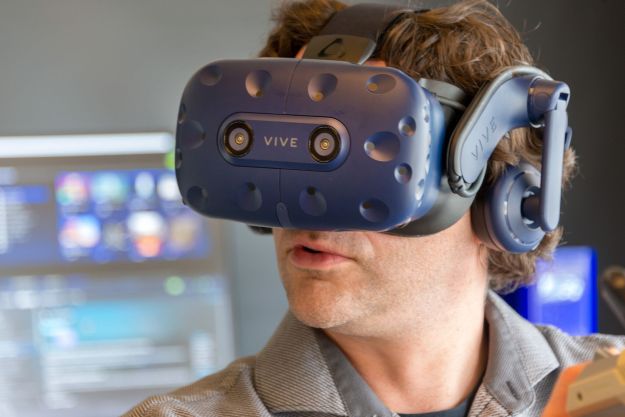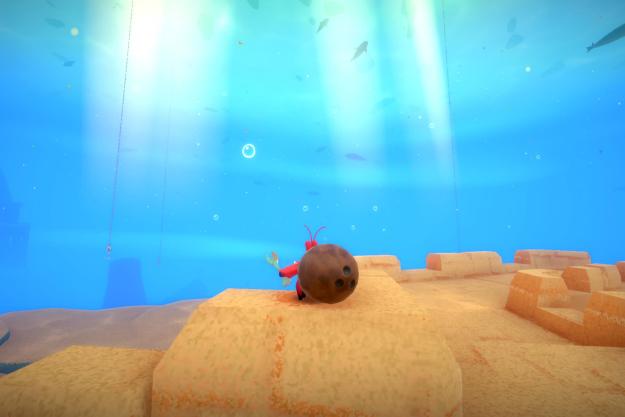Assassin’s Creed is one of the few AAA game series that bothers to engage with history. For each installment of the franchise, Ubisoft meticulously researches the historical settings it seeks to depict, finding ways to artfully inject its overarching fiction — the ancient and ongoing power struggle between the Assassins and Knights Templar — into gaps of the history we know. Seeing how the team weaves those threads together has always been one of the series’ highlights.
Assassin’s Creed: Origins, the tenth chapter of Ubisoft’s signature franchise, might have the series’ most interesting setting yet, dialing the franchise’s clock back to Egypt, circa 49 B.C.E. — Cleopatra has been deposed, Caesar and the Roman Empire is drawing near, and much of human civilization is in a state of flux and change.
That’s more than 1,000 years further back than any Assassin’s Creed has ever gone (specifically, 1,000 years before the original game, which was set in Jerusalem and the surrounding area during the Crusades). It’s also a key moment in the fiction of the franchise: The birth of the Assassin Brotherhood.
“We knew that we were planning a game over a thousand years before AC1, so we felt it was an opportunity to tell, within our lore, the story of the birth of this group of people who’ve lasted over 2,000 years in the lore,” Ashraf Ismail, Origins’ game director, told Digital Trends at a preview event in September.
The essence of every Assassin’s Creed game is really its historical setting, and Ubisoft’s developers always put a huge amount of effort and research into realizing those places in an accurate way — even if the historical settings wind up populated with fictionalized versions of real-life people who often find themselves embroiled in the Assassins’ and Templars’ conflict.
A whole new world
In Assassin’s Creed Origins, Egypt gets a similar treatment. It’s a huge country suffering through a critical transition. Cleopatra has been deposed by her brother, Ptolemy, who’s being manipulated by the Order of the Ancients, a clandestine organization seeking to control Egypt. And approaching from outside Egypt’s borders are the Roman Empire and Julius Caesar.
“It was always a dream of ours to bring Ancient Egypt to life, as a developer. But also, it’s something that’s always in the top three settings that fans want,” Ismail explained. “Having said that, bringing Ancient Egypt to life, the country that is Egypt, the sheer scope and size and variety of this world, making sure this world was contiguous and represented properly … there are many technical hurdles and challenges there. But we felt that we were at a state to be able to bring that world to life, and setting in 49 B.C.E. is because it was a time that was really crucial in the history of humanity and civilization. And so, to have the birth of something important felt meaningful. That was really the kick-starter to all this.”
Ubisoft showed off a portion of the game to journalists during the preview event, which represented just a chunk of the overall map of the game. It featured rivers, farms, ruins and burgeoning villages, and players could find themselves battling rogue hippopotamuses one moment, and interrogating shopkeepers in a small market square the next. While much of our time was concerned with finding treasures and fighting villains — the same kind of side-quests that have populated Assassin’s Creed games for years — those quests spanned a suitably huge countryside, from deserts to Nile farmlands to ruins and back again.
Bringing things closer to home
Where we picked up the story, central protagonist Bayek and his wife Aya find themselves defending the now-deposed Cleopatra against the Order of the Ancients. Centering the story on a husband and wife team, Ismail said, helped to make Origins a more mature story than some other entries in the series.
“When we decided on the birth of the brotherhood and being set in this time period, first we wanted the tone to be a little bit more mature,” Ismail said.
“… his views on life are being challenged, politically speaking, religiously speaking, on a very personal level”
“The other element was, we wanted the birth to be somehow very personal. It wasn’t a group of people who decided, ‘Hey, let’s start a group of assassins and we’ll have meetings around nice tables.’ The idea was that this is a very personal story that is fundamentally showcasing two people who love each other dearly, who have the same objective, but that look at the world from two different points of view.
“We were asking ourselves, how can we create a relatable set of characters that are dealing with the problems that any one of us could be having, and so a husband and wife relationship felt quite perfect for showcasing the trials for two people who really love one another. Yes, there can be friction, there can be antagonism between these two even if there is chemistry and there is love, and there is even a similar objective. We thought it gave us the opportunity for really high drama.”
Bayek is an Egyptian himself, rooted in the ancient culture. Assassin’s Creed games have often presented history fans might find familiar, but not from a commonly taught perspective, at least not the perspective taught in countries such as the U.S. In the original Assassin’s Creed, players took on the role of Altair, a Muslim assassin facing off against invading European Crusaders. And in Assassin’s Creed III, players witnessed the founding of the United States from the perspective of a Native American man who went by the Anglicized name Connor.
Both of those games deal with the less rosy elements of history. ACIII brought up George Washington’s military dealings with Native American tribes, for instance, and raised the question of whether the Founding Fathers could really be seen as brave pursuers of liberty when they owned and kept slaves. Ismail said the Egyptian perspective on the changing world will inform Assassin’s Creed: Origins’ story in its own way.
“It was very important for us that we tell the story from the perspective of, let’s say, Bayek, who is an authentically native Egyptian,” Ismail explained. “We wanted a character that maybe even represented Old Egypt, and he’s being challenged, his views on life are being challenged, politically speaking, religiously speaking, on a very personal level.”
Larger than life
Bayek and Aya encounter some major historical figures during the course of the story. There’s Cleopatra, of course, as well as Ptolemy and Caesar. Ismail said it was important to create grounded portrayals of even the most historically renown characters, rather than turning them into larger-than-life, idealized historical versions.
“In terms of Cleopatra and Caesar and Ptolemy, our starting point is research,” he said. “We do a lot of research, whether it’s from Egyptologists and historians, to more media, how were these characters portrayed in TV shows, movies, whatever. It’s not to recreate those interpretations, but to make sure we have all the funnels of information to be able to come up with our interpretation.
“For characters like Cleopatra and Caesar, let’s say, these are … they’re bigger than life, they’re almost caricatures, what we know of them. And the thing is, what we wanted to represent are human beings that have strengths and weaknesses, that have ambitions, that have faults. They’ve accomplished incredible things, they also have really wonderful strengths.”
Before the demo shown to journalists, Ubisoft played a cutscene setting up the story in which Bayek and Aya found themselves meeting with Cleopatra.
“That was kind of touching on the element that at some point, she’s a phenomenal woman, but she’s a human being,” Ismail said. “She has to count on other people. She has to rely on others, she’s not an actual goddess as she portrays herself to be, or even as her people believe her to be. So, she has to rely on other people, she has helpers, she has people who betray her. So how does this person, psychologically speaking, deal with all that. We played a little bit with that.”
Ismail also said fans can expect Assassin’s Creed: Origins to add to the lore of the incredibly powerful First Civilization that the series has been building on, in fits and starts, since the very beginning.
“We’re in Egypt,” he said. “We have tombs, we have temples, we have this pantheon of gods, Egyptian mythology. I mean, people can look at previous AC games and maybe see links that existed, so for sure, how can we do a game in Egypt without touching those links?”
That’s a lot of story elements to weave together, and Assassin’s Creed: Origins is poised to be the biggest game in the series yet. A more mature story telling a personal tale that sparks the beginning of the Assassin Brotherhood is certainly an interesting idea. Fans will have to wait until the launch time later this month to see whether the game can draw them together.
Assassin’s Creed Origins comes to Xbox One, PS4, and PC October 27.
Editors' Recommendations
- Ubisoft and Netflix partner for an Assassin’s Creed show and mobile game
- Assassin’s Creed Origins leads June’s Xbox Game Pass lineup
- Ubisoft scrambles to take down leaked Assassin’s Creed Valhalla footage
- Ubisoft not worried over similarities of Assassin’s Creed Valhalla, God of War
- Ubisoft terminates player-made XP farming quests in Assassin’s Creed Odyssey













